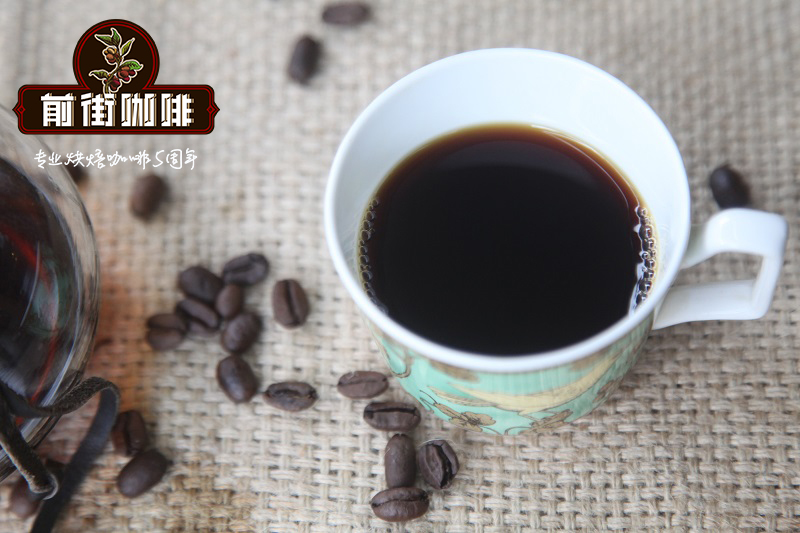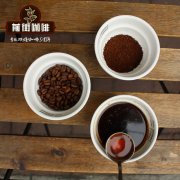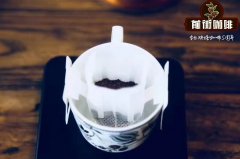Traditional Chinese medicine says you can't drink coffee? Coffee is suitable for whom to drink? How would you like your coffee?

Professional coffee knowledge exchange More coffee bean information Please pay attention to coffee workshop (Weixin Official Accounts cafe_style)
Friends who have seen Chinese medicine should have a high chance of hearing the following similar taboos for coffee: "Coffee will cause damp and hot constitution, you should drink less","Your acne is related to your body heat, less touch irritating food, spicy roast fried, coffee are not suitable", as if Chinese medicine is opposed to drinking coffee more, what is the actual situation? Do these evaluations of coffee start from the most basic coffee essence?
First of all, I like to drink coffee, not every day must drink the degree, but on average a week will drink 1~2 cups; coffee does not know what the player level, but also because of half a coffee shop. What about my friends in the industry? One can only say that one is better than the other. The most recent one is that someone got a pound of Alishan coffee for 2000 yuan and pushed people into the pit.
Returning to traditional Chinese medicine's understanding of coffee, the information we get on Google is mainly warm in nature, red in color, bitter in heart. There are also other opinions such as yellow and black after roasting, extremely bitter and sour in taste, sweet and bitter in taste, etc. I personally feel that most of these accounts are incomplete.
Caffeine is one of the most important active ingredients in coffee, and the general observation of coffee's effectiveness comes from this. It is recognized as a central nervous stimulant, so that coffee has a significant refreshing, refreshing effect, excessive will create excessive excitement, insomnia, palpitations. For these reasons, I think it is basically true to say that coffee is warm in nature, but should coffee be banned on this basis? I don't think so. First of all, since coffee is classified as "warm" rather than "hot" or "hot," it basically means that it is not a very extreme thing.
Again, in terms of caffeine alone, it generally takes effect within 1 hour after ingestion, and the stimulation of the central nervous system is about 4 hours, which is about a morning and afternoon period. Although age, congenital constitution, disease factors, and other medication factors may affect the duration of caffeine action, for example, some pharmacokinetic studies have pointed out that the metabolic period of pregnant women and children can exceed half a day to one day, but I personally do not see much evidence for the "long-term damp-heat constitution" that is often said in Chinese medicine.
The so-called damp-heat constitution of traditional Chinese medicine really needs to be said. The common types are divided into large intestine damp-heat, damp-heat trapping spleen, liver channel damp-heat, gallbladder channel damp-heat, bladder damp-heat, etc. according to the positioning of viscera. The performance of each constitution is not the same. The physical abnormalities most easily felt by drinking coffee: heat, excitement, palpitations, polyuria, at most, are only relatively close to the performance of bladder damp-heat and liver damp-heat. Not to mention that the current evidence suggests that these phenomena are mostly short-term, dose-related side effects of coffee. Although it is known that prolonged caffeine intake causes the body to adapt to it and produces symptoms such as headaches and hypotension during withdrawal, these are not related to the so-called "damp heat constitution."
Important Notice :
前街咖啡 FrontStreet Coffee has moved to new addredd:
FrontStreet Coffee Address: 315,Donghua East Road,GuangZhou
Tel:020 38364473
- Prev

KFC Arabica Coffee Why is Arabica Coffee so High-end?
Professional coffee knowledge exchange more coffee bean information Please pay attention to the coffee workshop (Wechat official account cafe_style) Coffee varieties can be divided into Arabica, Robusta and Liberica if they are biologically classified. The main drinking varieties in the world are Arabica and Robusta. Due to the low output of Laibirika,
- Next

Why do some people drink coffee refreshing, while others drink coffee useless? The role of caffeine
For more information on coffee beans, please follow the coffee workshop (official Wechat account cafe_style). We all know that caffeine is refreshing, but we don't know the mechanism. Now the Sleep Biology Laboratory of the University of Colorado in the United States and the Cambridge Molecular Biology Laboratory in the United Kingdom have found that caffeine affects the body's biological clock and is the master clock. Mammalian
Related
- Beginners will see the "Coffee pull flower" guide!
- What is the difference between ice blog purified milk and ordinary milk coffee?
- Why is the Philippines the largest producer of crops in Liberia?
- For coffee extraction, should the fine powder be retained?
- How does extracted espresso fill pressed powder? How much strength does it take to press the powder?
- How to make jasmine cold extract coffee? Is the jasmine + latte good?
- Will this little toy really make the coffee taste better? How does Lily Drip affect coffee extraction?
- Will the action of slapping the filter cup also affect coffee extraction?
- What's the difference between powder-to-water ratio and powder-to-liquid ratio?
- What is the Ethiopian local species? What does it have to do with Heirloom native species?

